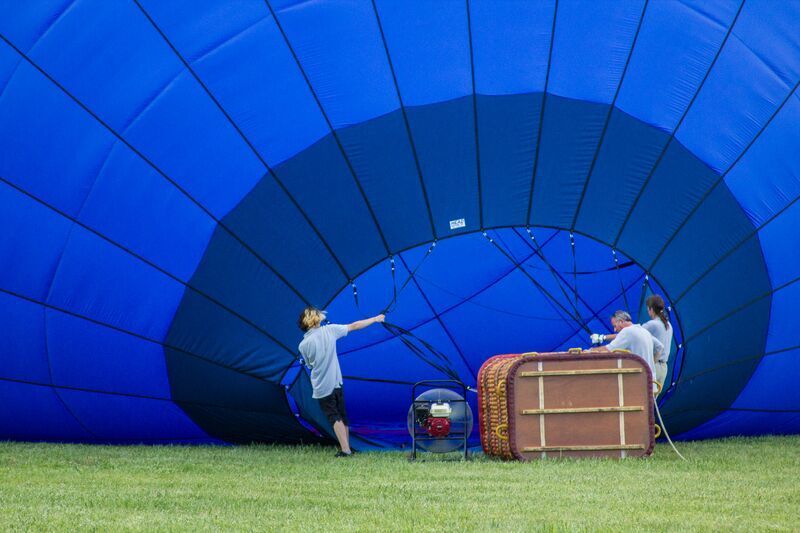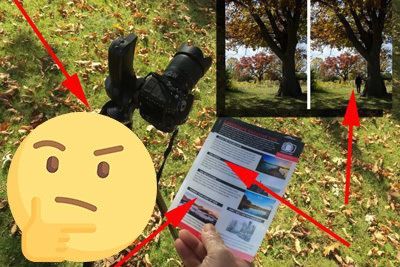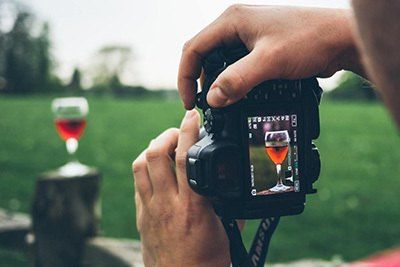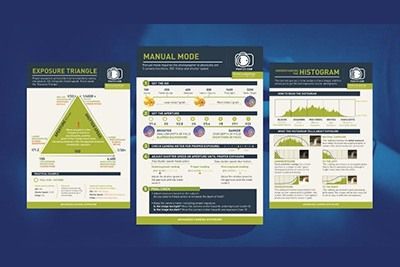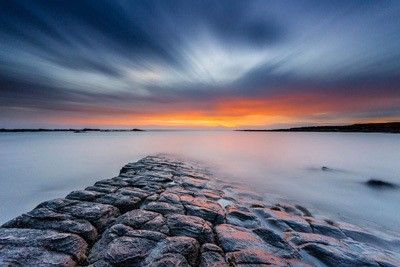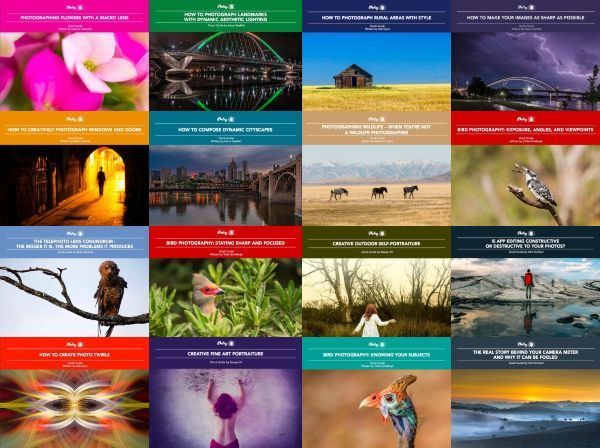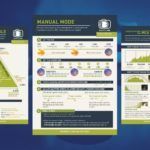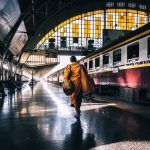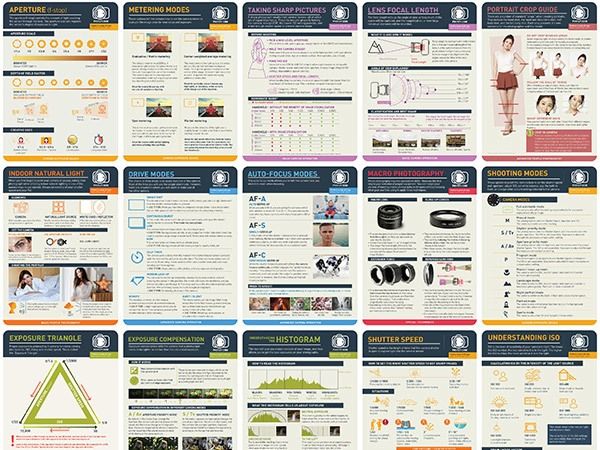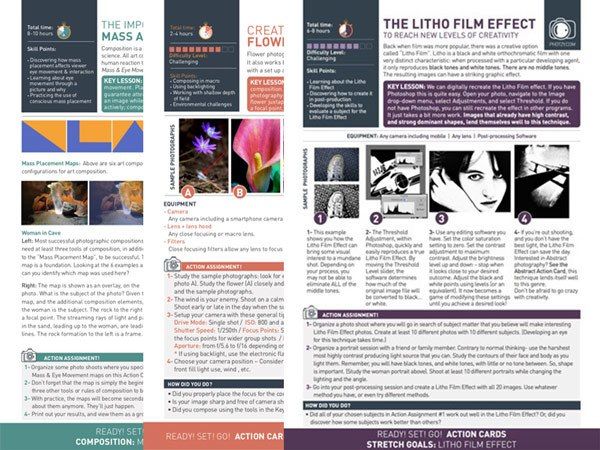I absolutely love attending balloon festivals. They are full of color and excitement, with photo opportunities at every turn. After taking many thousands of photos at balloon festivals over the years, I’ve learned a lot about what to expect and how to make the most of your days (and nights).
In this Quick Guide, I will cover many aspects of taking photos at balloon festivals, including what to wear, what equipment to bring, and how to capture images in unique ways. These tips and suggestions also apply to other events, such as county fairs and cultural festivals, and I’ll touch on some related tips for those types of events as well.
Now, if you’re ready, let’s fill our balloons and start our ascent!
Preparing for Success
Tip #1
Before going on a trip or planning a weekend to attend a balloon festival, I highly recommend checking online to research what balloon festivals may be happening. Just typing in a specific city or town and the word “balloon festival” into your favorite search engine can yield some great results. For example, I found this great article about the world’s largest balloon festival (the Albuquerque International Balloon Fiesta) via a quick Google search for “balloon festival”.
For more general searches of festivals (not just balloon festivals), you can visit Flickr.com and type in the town where you plan to visit. Add the word “festival” to narrow your search. It’s surprising how many events and interesting places come up.
You might be surprised to learn that some balloon festivals have “media days” in which the amateur and professional photographers are invited to attend for no fee. This has been the case at one of my favorite festivals on the East Coast: the QuickChek New Jersey Festival of Ballooning. Some of my favorite balloon photos have been taken on media days like these.
Some balloon festivals have “media days” in which the amateur and professional photographers are invited to attend for no fee.
It’s also important to know that many balloon festival launches occur just after sunrise and just before sundown because that’s when winds tend to be the most calm during daylight hours.
That means you’ll be getting up very early to capture the action, and you will have quite a lot of time to do other things while waiting for the afternoon launch (assuming there are two launches a day). Luckily, there are usually a lot of activities for all ages going on throughout the day. These offer many photo opportunities, and I explore this topic more in Tip #9.
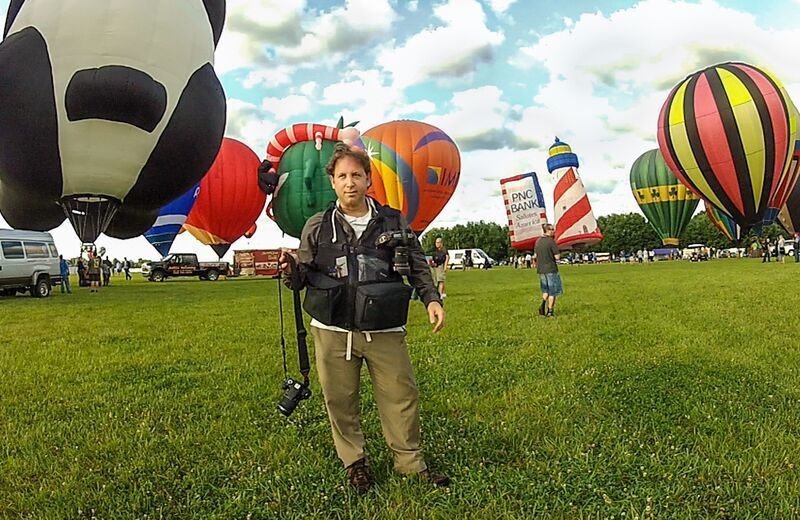
This photo of me is a still image from a video clip from a GoPro video camera. I’m wearing a photo vest from TheVestGuy.com, which makes it easy for me to carry two cameras, as well as a lot of other gear. In this photo, I am carrying one camera via a camera sling, but both cameras can be attached to the front of the photo vest. Photo by Andrew Darlow
I would be remiss not to mention something about clothing. As you may have guessed, you will probably experience a wide swing of temperatures throughout the day from before sunrise to after sunset. I find that lightweight layers work best, such as a windbreaker and light pants over shorts. I also always have a waterproof cover for all of my gear, just in case of rain. That can be as simple as a few plastic bags. One tip I must share is to wear waterproof footwear! The dew that forms in the early morning (even if it hasn’t rained for days) can easily saturate through your shoes and make for a very uncomfortable day. If you really want to be extra prepared, pack an extra pair of socks. If it’s cold, a pair of mechanic gloves, commonly sold in stores like Lowes and Home Depot, can make a huge difference. If you choose a size that fits tight enough to allow you to still operate your camera, you will hardly ever need to take them off. Also, don’t forget the sunscreen!
And always remember that safety comes first. If you are fortunate enough to be able to take photos inside the launch area, it’s important to keep a safe distance from the balloons (especially when they are filling up with air and getting ready to launch). Winds can quickly twist and turn a huge balloon, and the crews who get the balloons in the air use heavy ropes, which can cause all kinds of safety issues if you are not careful.
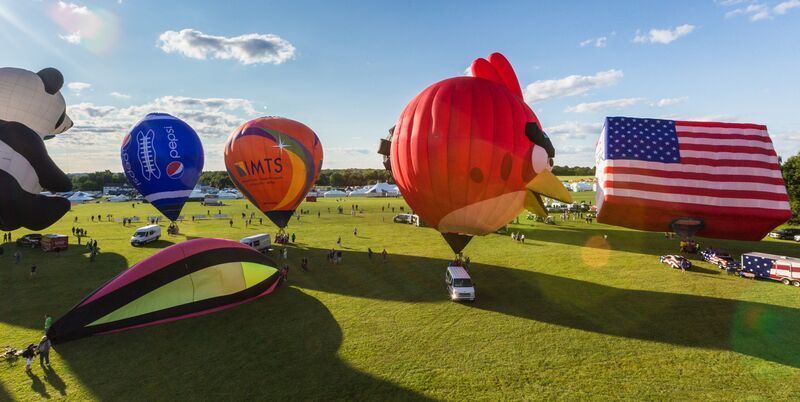
This photo looks like it could be a multi-image panoramic, but it was just cropped top and bottom. It also has some visible flare, which can add to the drama in an image. I recommend experimenting with cropping in this manner. Camera: Canon EOS 6D, Lens/Focal Length: Canon 16–35 mm @ 16 mm, Aperture: f/22, Shutter Speed: 1/400 sec, ISO: 800.
Photo by Andrew Darlow
Tip #2
One of my top tips for any type of festival in which the action comes and goes within a short amount of time is to have at least two cameras. That could mean two DSLRs, a DSLR and a mirrorless camera, or even a DSLR and a compact camera or camera phone. There are two reasons for this. First, gear can break down. Another reason is that having two cameras allows you to capture images with two very different focal lengths without having to change lenses while the action is happening. This is especially important during balloon festivals. If you saw me during most balloon launches, you would see me flipping between two DSLR cameras, one with a 75-300mm lens and the other with a 16-35mm lens. That enables me to get a wide range of different images before all of the balloons drift off into the wild blue yonder.
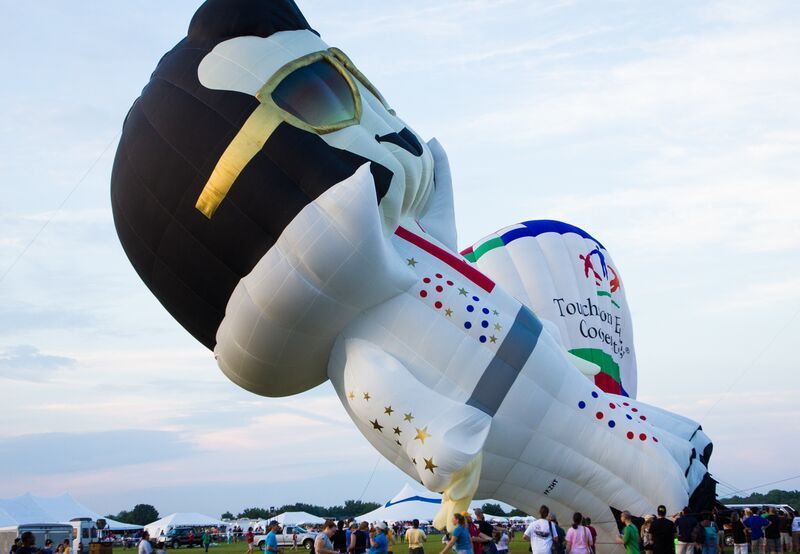
Camera: Canon Rebel T2i, Lens/Focal Length: Canon 16–35 mm @ 35 mm, Aperture: f/4.5, Shutter Speed: 1/100 sec,
ISO: 400. Photo by Andrew Darlow
The key with regard to using multiple cameras is that they don’t obstruct your ability to move around comfortably. This is even more important if you plan to board a balloon for a flight (tethered or untethered). A tethered balloon flight is like any other balloon launch, but there are ropes between the ground and balloon that keep the balloon from flying away.
Tip #3
A photo vest is very helpful for managing two cameras, and a photo “sling” can serve a similar purpose in case you don’t want to look like a news photographer. The vest I use is from TheVestGuy.com, and is called the Wedding Photographer’s Vest. I use Peak Design’s Capture PRO Clip with it (www.peakdesign.com) to secure my camera to the outside of the vest, and I love the combo. That being said, the vest comes with a strap that you can use from which to hang a camera. The main advantage of Peak Design’s Capture PRO Clip is the extra stability it offers due to the way it attaches to traditional backpacks, sling backpacks or photo vests.
Tip #4
Bring more media cards and more batteries than you think you need! Also consider using either a mirrorless camera or an LCD hoodloupe so that you can review your images as you are shooting, even in bright sunlight. Mirrorless cameras have EVFs (Electronic Viewfinders) that make this easy.
Bring more media cards and more batteries than you think you need.
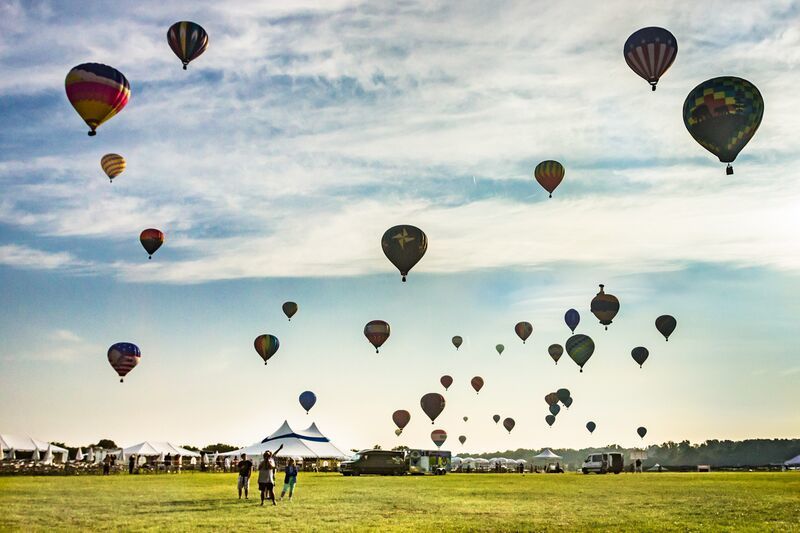
When I turned and saw the number of balloons dotting the sky after an early morning launch at the NJ QuickChek Festival of Ballooning, I was truly awestruck. I was fortunate that there were a few people in the foreground, one of whom was pointing at one of the balloons, and another who was taking photos. Camera: Canon Rebel T2i, Lens/Focal Length: Canon 16–35mm @ 16mm, Aperture: f/5, Shutter Speed: 1/4000 sec, ISO: 800. Photo by Andrew Darlow
High-Flying Photo Techniques
Tip #5
Speaking of getting a wide range of images, switch back and forth between horizontal and vertical orientation from time to time. It’s easy to get “stuck” on one or the other. Also, use your camera’s zoom to increase the number of different looks; this is especially powerful if you are up in a balloon. And consider taking a series of photos to later stitch together into a panoramic image. There are many tutorials online for creating panoramic photographs. There’s nothing like a wide-angle photo filled with colorful balloons floating through the air.
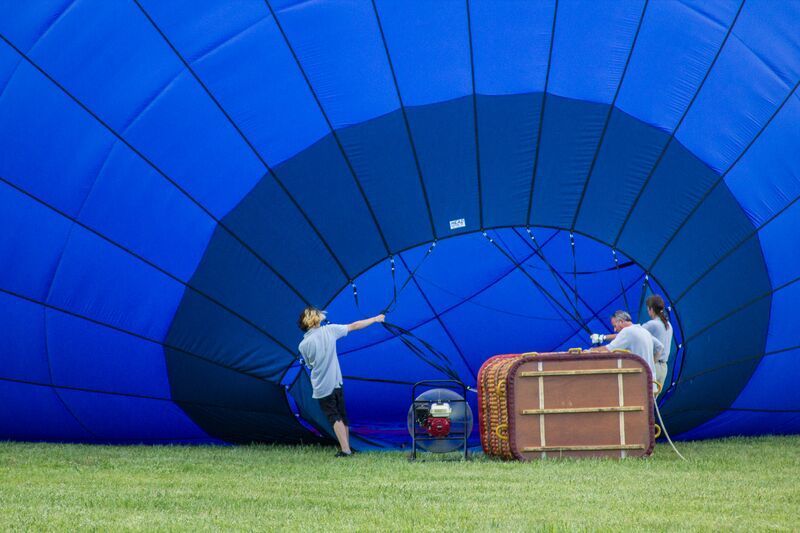
This photo shows a part of the work that goes into getting a balloon in the air. Even though I could not get very close, I was able to capture this moment at 135 mm with an APS-C-sized sensor, making the effective focal length about 200 mm. This was photographed at The Balloon Festival at the Warren County Farmer’s Fair. Camera: Canon Rebel T2i, Lens/Focal Length: Canon 28–135mm IS @ 135mm, Aperture: f/5.6, Shutter Speed: 1/4000 sec, ISO: 800. Photo by Andrew Darlow
Also take some photos that show scale. You can achieve this with just about any lens, but wide-angle lenses make this easier. When you include people, it really helps to show the huge size of the balloons. I think you’ll agree that the Elvis balloon (like the man himself during his long career) definitely commands attention from those in the area!
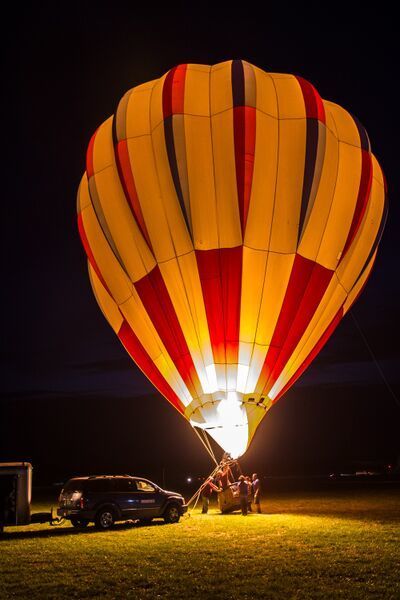
This photo is of a balloon in its nighttime glory during an “evening glow” at the QuickChek New Jersey Festival of Ballooning. I like including things like cars and trailers to give the viewer a bit more information about the scene. Camera: Canon Rebel T2i, Lens/Focal Length: Canon 16–35 mm @ 22 mm, Aperture: f/4, Shutter Speed: 1/15 sec, ISO: 800.
Photo by Andrew Darlow
Tip #6
If you have permission to get very close to the action (or if you have a telephoto lens to get similar images from further distances), take a series of photos while a balloon is being inflated. A wide-angle lens works best if you are right next to the balloon. You will probably want to use higher ISOs (ISO 800–3200) so you can stop down to f/8 to f/16 for added depth of field. Higher ISOs are also useful during evening “Balloon Glows,” especially if you don’t have a monopod or tripod. Balloon Glows are periods of time (usually after sunset) in which the balloon pilots activate their propane burners, creating a glow inside of the balloons. You may even be allowed to walk inside a balloon during inflation, which allows very interesting views of the balloon’s basket and the balloon’s interior fabric.
Regarding higher ISOs, every camera has its “breaking point” in which the photos will have so much noise (digital grain) that they will be difficult to use. Without going too far into this topic, some noise can look great, and software can reduce noise considerably, but it’s best to know at what point your camera starts to really produce images with a lot of noise.
Some noise can look great, and software can reduce noise considerably
Tip #7
Just a quick word on tripods and monopods. I’ve found that tripods at balloon festivals are most useful at night when you want to capture motion but at the same time want the background to be very sharp. It’s also great for video, like when you want to capture a band’s performance. Monopods can be very useful for stabilizing your camera, but I prefer the photo vest approach I mentioned in Tip #3 above so that I don’t have to carry a monopod around.
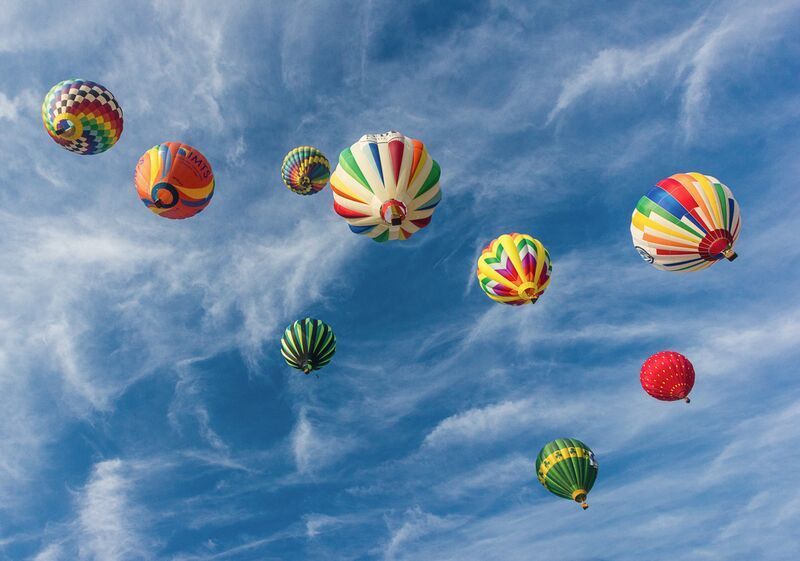
Camera: Canon EOS 5D Mark II, Lens/Focal Length: Canon 24–105 mm @ 105 mm, Aperture: f/5.6, Shutter Speed: 1/100 sec, ISO: 1000. Photo by Andrew Darlow
Tip #8
Take photos from directly below the action. This is especially interesting during balloon launches because the balloons will often look like lanterns from below. Just be sure to keep alert at all times because it’s easy to get disoriented when looking straight up through your camera’s viewfinder.
Tip #9
A lens hood will often come in handy at balloon festivals by reducing flare in your photos when aiming your camera up, due to direct rays from the sun, or light reflections off of other objects or even balloons. Just be sure that you are not creating a vignette in the corners of your images. To test this quickly, set your lens to the widest focal length and point your camera at a clear sky or bright white/gray wall while looking into the corners. Then take a photo and inspect all the corners in the LCD. Often, you just need to zoom your lens in 1-2mm to avoid the flare.
Other Photo Ops
Tip #10
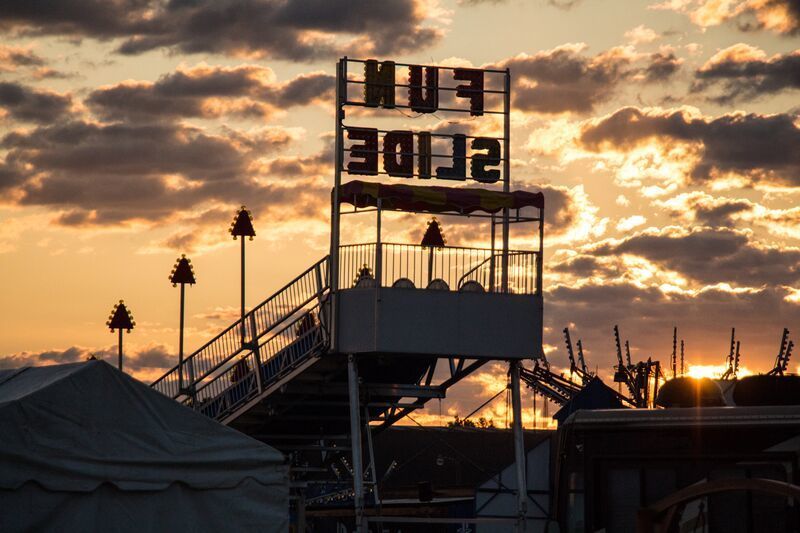
I photographed this image just as the sun (and the balloons) were rising on a “media day” at the QuickChek New Jersey Festival of Ballooning. Camera: Canon Rebel T4i, Lens/Focal Length: Canon 18–135 mm STM @ 135 mm, Aperture: f/5.6, Shutter Speed: 1/4000 sec, ISO: 800. Photo by Andrew Darlow
As I mentioned earlier, when balloons are not filling the sky, there are often many other things to do and photograph at festivals, from antique cars to amazing artwork to very colorful food trucks and food/ merchandise carts. If you go to a state or county fair, there will often be farm animals on-site, which can offer some outstanding photo opportunities. Look for areas where the light is best to capture interesting images, or use a flash (as long as it is permitted). I photographed an amazing bee display at a local fair a few years ago that was an eye-opener! It’s often dark in these locations, so higher ISOs and wider apertures are usually the best approach. I prefer using Aperture Priority Mode in these situations.
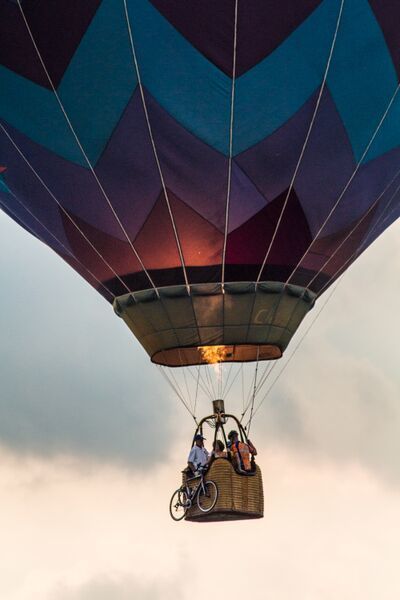
This photo was taken during the Bicycle Balloon Race at The Balloon Festival at the Warren County Farmer’s Fair. Camera: Canon Rebel T4i, Lens/Focal Length: Canon 18–135 mm STM @ 135 mm, Aperture: f/5.6,
Shutter Speed: 1/4000 sec, ISO: 800. Photo by Andrew Darlow
Tip #11
Look for unique photo opportunities at balloon festivals. New Jersey has a relatively small but fantastic balloon festival called the Balloon Festival at the Warren County Farmer’s Fair in Phillipsburg, NJ. It offers countless photo opportunities; you can find out more about it at balloonfestnj.com. One interesting aspect of the festival is the Bicycle Balloon Race. As explained on the website: “Bicyclists and balloonists pair up for a challenging Bicycle Race. Participating pilots will launch with a bike and bicyclist. After flying for a predetermined distance or amount of time, the pilot will land and let the bicyclist out, who then must cycle back to the Fairgrounds. The team who returns to the Fairgrounds first wins a cash prize. All entry fees for the race will be donated to a local charity.” I was able to capture a photo of a balloon with a bicycle attached that I was very happy with, and I find these types of photos to be very interesting because they are unexpected.
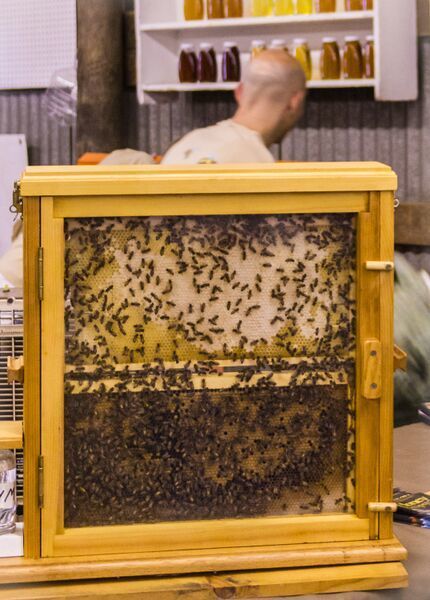
This photo is of a beekeeper’s booth at the Warren County Farmer’s Fair. Camera: Canon Rebel T2i, Lens/Focal Length: Canon 28–135 mm @ 28 mm, Aperture: f/3.5, Shutter Speed: 1/60 sec, ISO: 1600. Photo by Andrew Darlow
Tip #12
State or county fairs tend to have farm equipment on display (sometimes over a hundred years old). This equipment often has interesting logos and weathered paint that is great to photograph. Close-ups with a shallow depth of field (f/1.7 to f/5.6) tend to be most interesting to me, but great photos can be taken at just about any aperture and focal length. State or county fairs also frequently feature demonstrations of crafts and trades like horseshoe making and chainsaw sculpting of wood stumps (this is truly amazing!). Close-ups of an artist’s hands working from beginning to end can make for a very interesting series of images. Combining some of these aspects of state or county fairs with balloons in the background can also make for great images.
Close-ups of an artist’s hands working from beginning to end can make for a very interesting series of images.
I hope this Quick Guide helps you to create better photos at balloon festivals…and anywhere else you may venture on our amazing planet!
If you have any comments or questions regarding this Quick Guide, feel free to post them on Photzy’s Facebook page.
All the best!
Andrew


